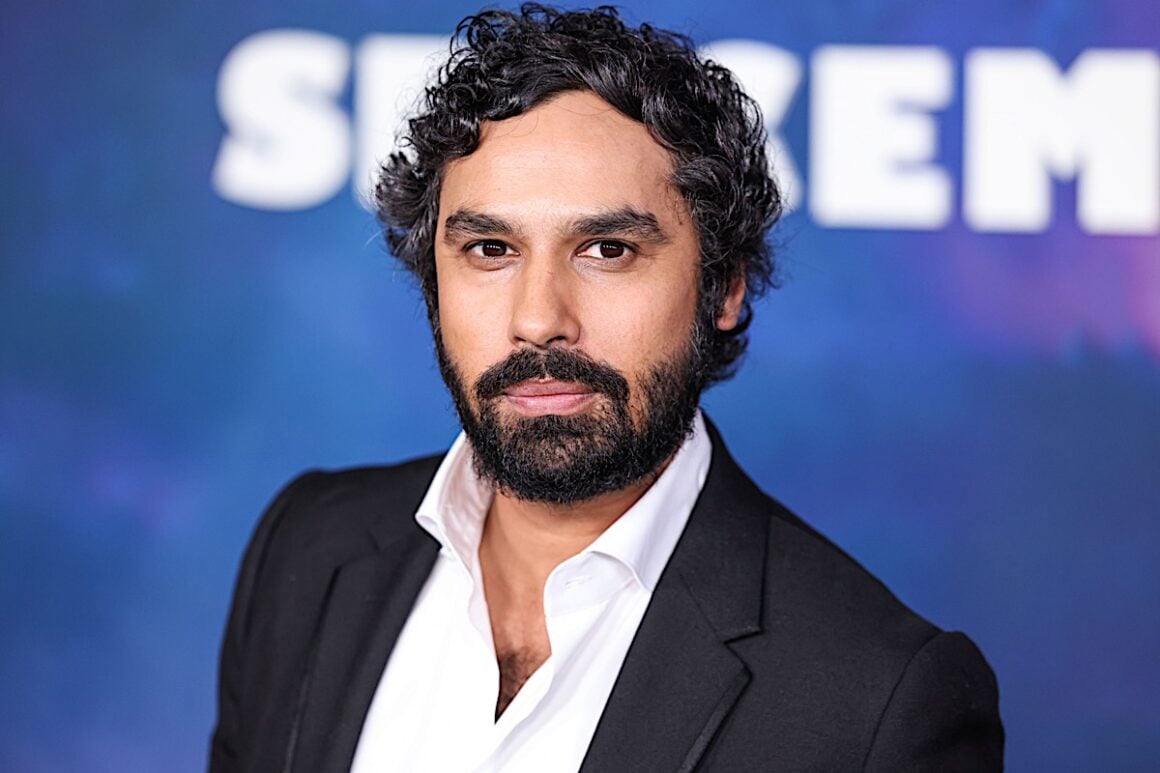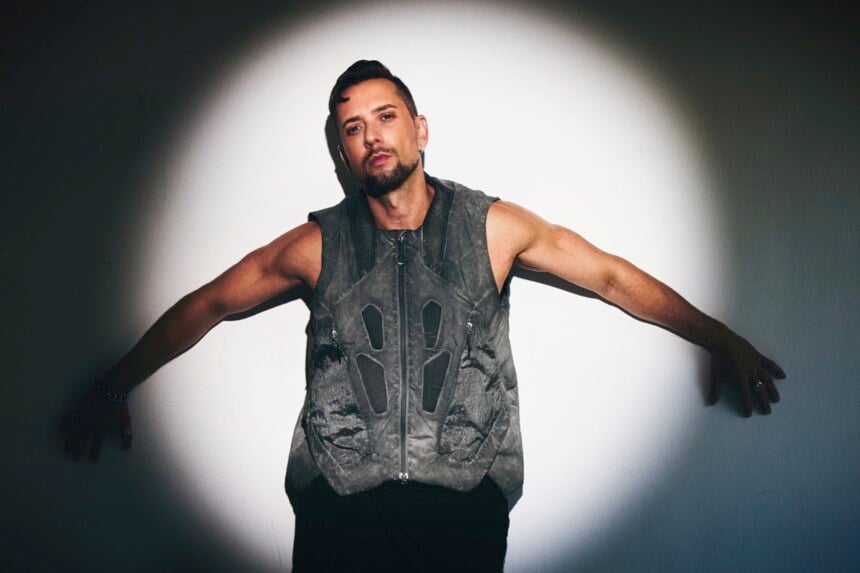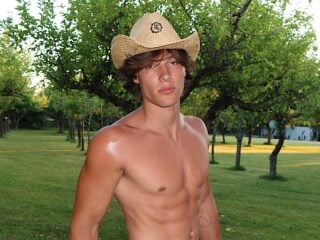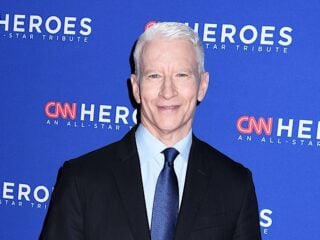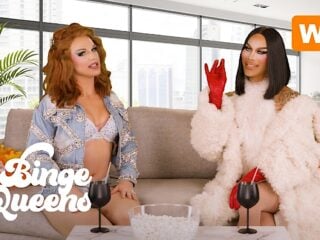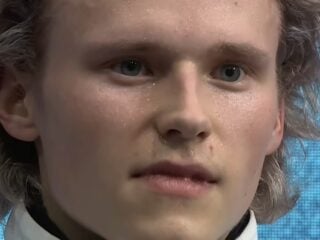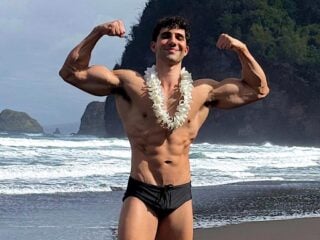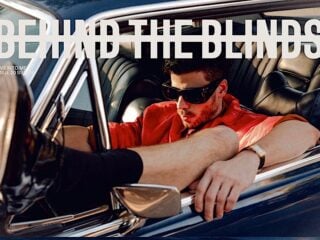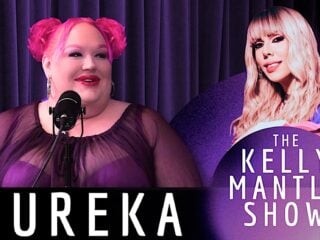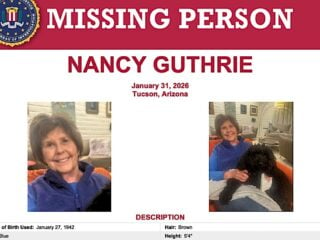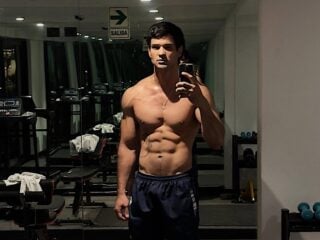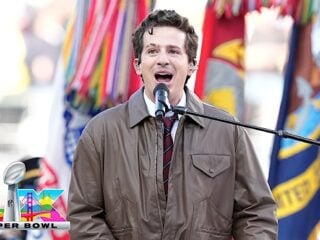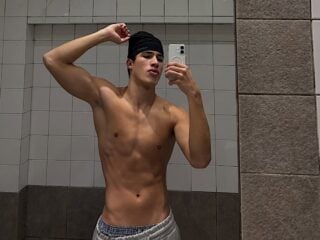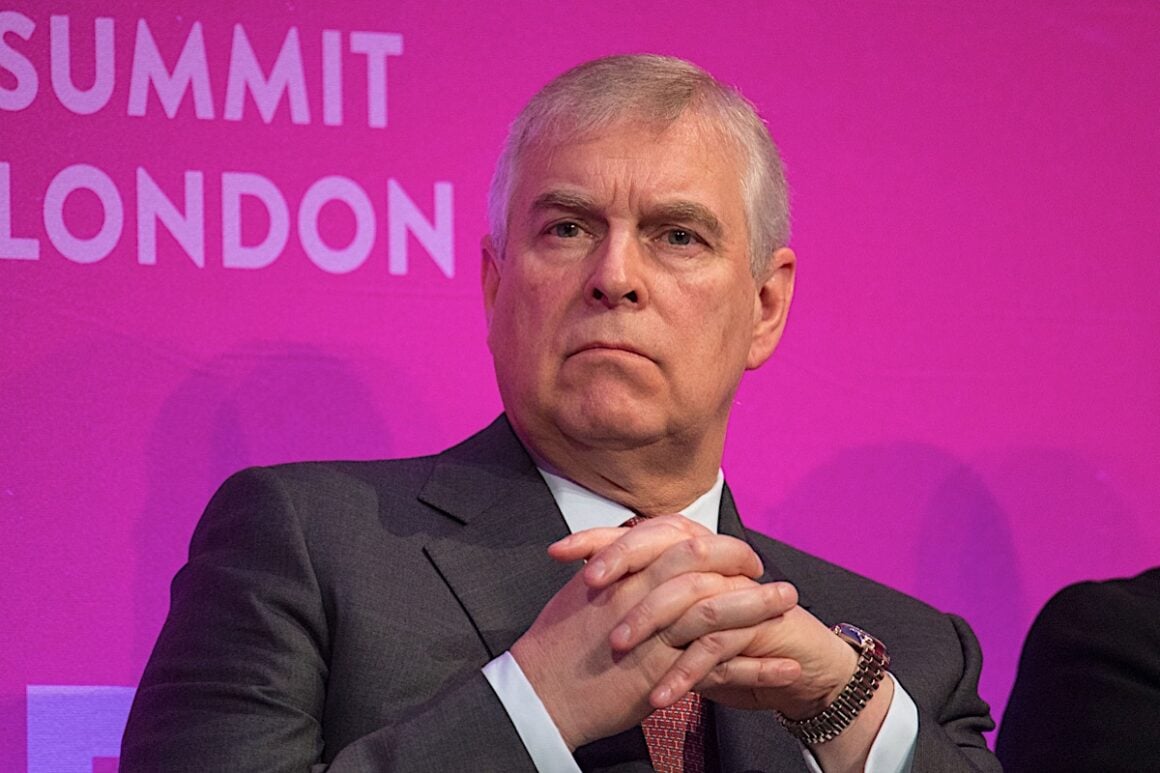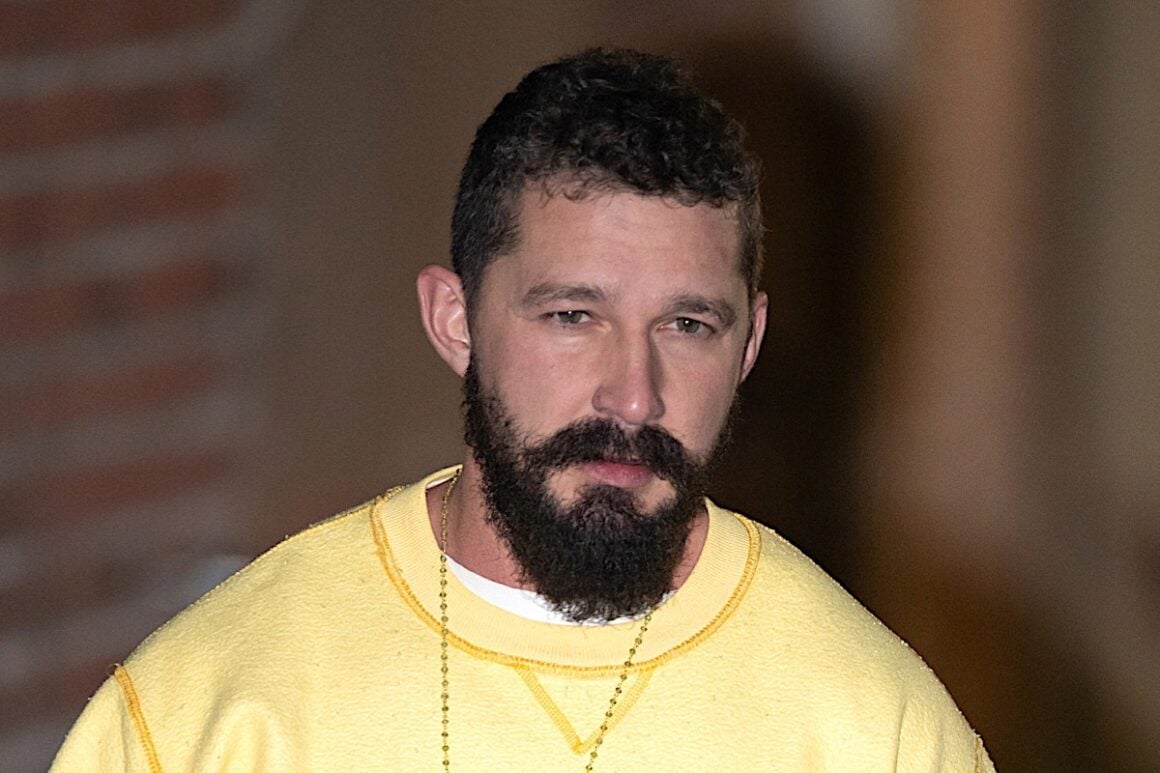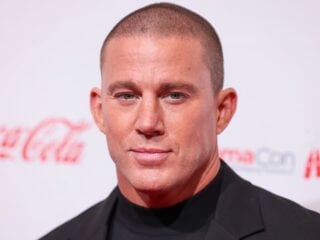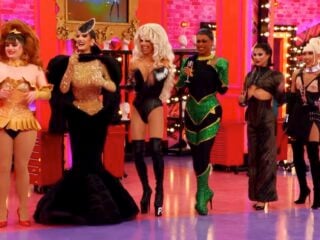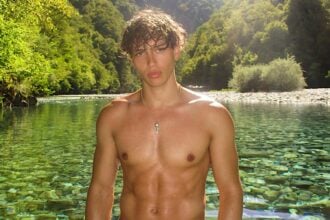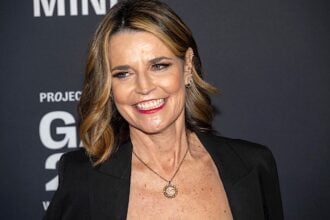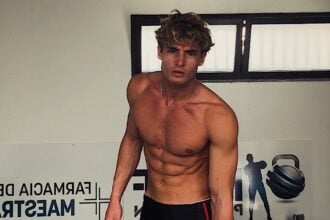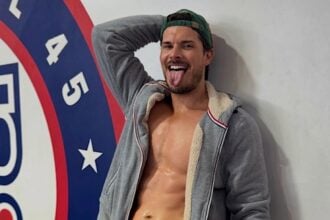Former American Idol finalist and acclaimed pop-soul vocalist David Hernandez has never shied away from vulnerability in his music, but his latest single, “feel it all”, marks a powerful new chapter. Written during his own journey through addiction and recovery, the deeply personal anthem transforms private pain into universal healing.
What began as a song of self-therapy has blossomed into a raw, resonant piece of art, accompanied by a moving music video featuring real members of the queer and recovery community – including the iconic Sisters of Perpetual Indulgence. Together, David and his collaborators invite listeners and viewers alike into a space of honesty, representation, and connection.
With “feel it all,” David reminds us that healing isn’t about perfection—it’s about feeling, sharing, and finding strength in community. We had the chance to talk to David about the new single and video and how he was able to turn his trauma into a moving message that resonates with people from all walks and stages of life in our exclusive interview.
“feel it all” was originally something that you wrote just for yourself but what was the turning point that made you decide to want to share that song with the world?
Initially, I didn’t have any plans for it. I had no expectations for it. I was just kind of writing it because I had a couple of friends, including my sponsor, telling me that I should use my experiences in sobriety like I use any of my experiences in life and write about it through my music. Initially I was like, yeah, we’re not there yet. We’re not going to do any of that. But then one day – I don’t know what it was – I had just gotten back from being on the road. It was sometime in January and melodies just started coming to my head and I started thinking about this journey and how special it was and I just started writing it.
And then I called my friend Trent Park and I was like, hey, do you want to come over to the house this week? Here’s some ideas that I have. And he was like, yeah, it’s been a while. We hadn’t worked on a record since Don’t @ Me in 2022. So, he came over, we sat there – normally we’d sit there with some tequila, but we weren’t doing that. I just started singing melodies and ideas that I had. Our relationship is very copacetic. He hears what I’m doing and he kind of builds underneath it. Then we had basically a verse and a chorus, and then the song just sat there for three months as I went through life and was on the road and doing my acting and my films and stuff.
And one day in the shower I was like, oh my God, I have this idea for a second verse and I just started writing it and after I finished it, I played it for a few people and they were crying. They were just sobbing. And I’m like, what is wrong with you? You’re all unhinged right now.
And they told me, no, this song is so important and powerful and I think that it belongs to the world and I thought, oh God, I don’t know about all that. This is a very personal story and I didn’t know if I wanted to share that because it is so intimate and I’m not ready for the scrutiny and people weaponizing that, so I kind of just held onto it, like a little protective parent. And then one day, I guess I just got the balls to say, fuck it. You know what, why don’t we bring out the team? So, I called my publicist, I called my agent, I called my videographer, and I was like, what do you think about this idea? And then it was off to the races.
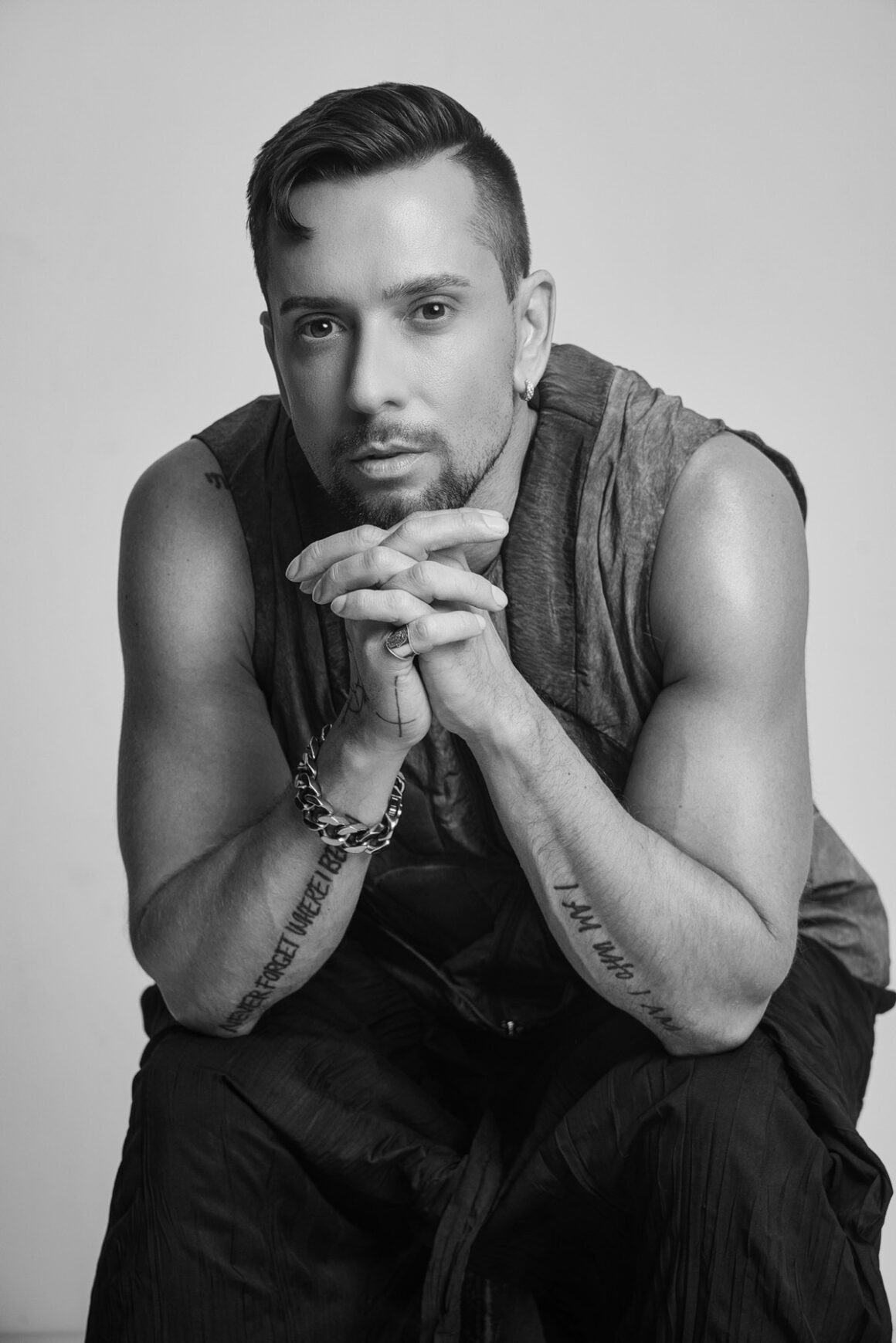
The song, and even the visuals in the video, they’re incredibly vulnerable and they show such a vulnerable side of you. Was it difficult to revisit those kind of emotions while you were recording the song?
Absolutely. I mean, I have things in my phone, I call it a “drunk-ologue” to talk about times that I’ve either figuratively or literally fallen on my face while being intoxicated. Those are always nice refreshers, but when I choose to look back at them, or photos, they’re refreshers to remind me. It was hard because there’s still a lot of shame that surrounds any mistakes you make in life, whether it’s related to addiction or trauma or anything.
We behave in ways that sometimes are less favorable or aren’t aligned with who we are now. And so, looking back on those times, sometimes it’s very cringey, you know, to be like, oh God, I did say that? Did I send that text message? That message that didn’t age well, or, you know, whatever the case.
And so, when I wrote the song, particularly when I wrote the second verse, when I say things like, and if I’m being honest with myself, I’ve been doing things that ain’t good for my health. I think that being honest is one thing, but when you’re honest with yourself, I think there’s a different level of challenge there because you have to just sit with that and when that is acknowledged, it’s like you have to change something.
So, you know, I admit to myself that yes, I am these things, or I have done these things, shit. Now I have to say I’m sorry to the people that I’ve hurt or now I have to acknowledge that maybe alcohol just isn’t best for me right now at this point in my life. You know, I’ve made a lot of mistakes but yeah, that’s tough. That’s a challenge for sure.
You’ve said sobriety kind of stripped away your escape routes and kind of forced you to really feel everything. Like how has that shaped not only your music, but your day-to-day life?
It’s a lot. I mean, no pun intended but really the best way to say it is you just have to feel all of it. The good, the bad, the ugly, the apathetic, the indifferent, just everything that is what it is to be human. You don’t get to escape. I mean, I love chocolate and I love caffeine and I love sex and all the earthly things that we get. But, taking away something that was a crutch for me for so long is an interesting adjustment now in my forties, I’m a 42-year-old man that just gave up something that he’s been doing since he was like 14, you know?
So, there’s a huge hurdle there, and in a lot of ways I’ve been able to get back to that little kid at six years old who wanted to be in theater and wanted to make music and stuff. It’s really cool and it’s kind of emotional. I’m very sentimental. I’m nostalgic a lot like when I start to unveil parts of myself that I’ve buried through coping mechanisms for trauma.
When I start to get those like little David-isms back, it’s really cool. It’s like, oh my God, I remember that part of who I was, and they’re like the most subtle of things. Just the way that I smile at certain silly things or remember certain smells…it’s weird, it’s almost like you’re in a new skin.
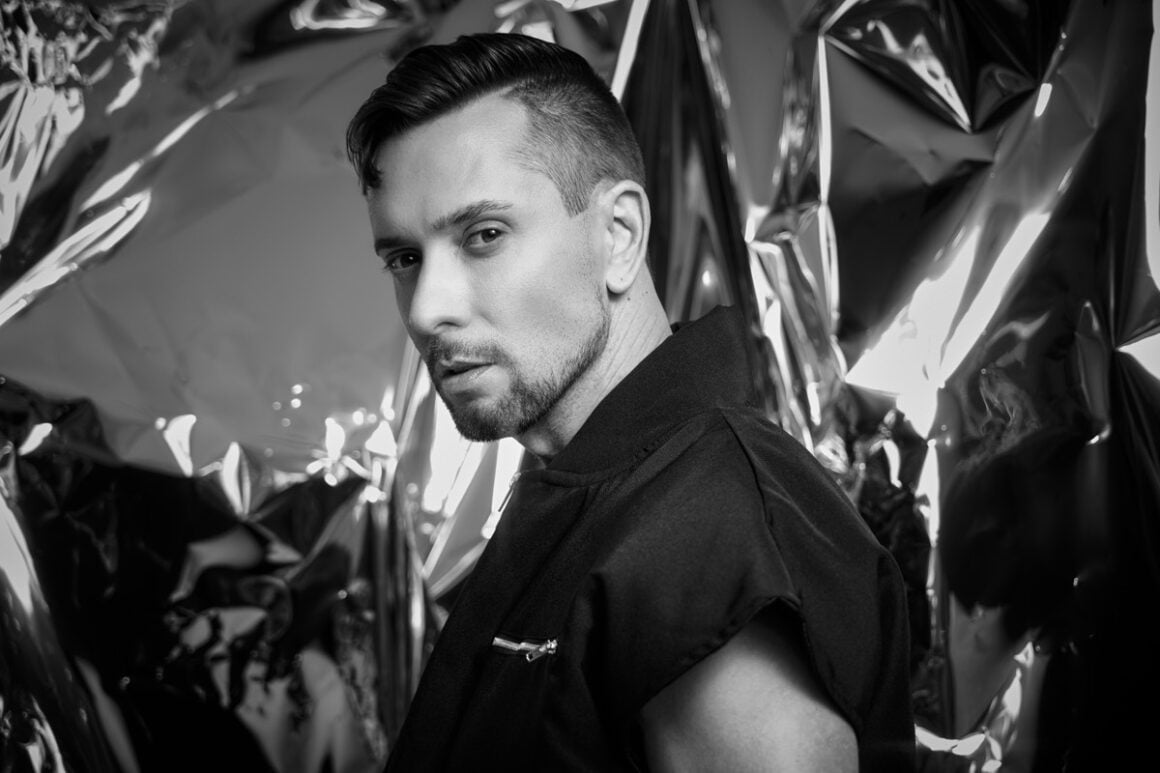
Healing is often described as kind of a non-linear process. What are some of the daily practices or rituals that help keep you grounded now?
Definitely prayer. I try to wake up in the morning and turn everything over to God. My higher power, a god of my understanding. I didn’t grow up religious, but I think a game-changer for me was being able to have a power greater than me, but a power that was of my understanding and not something that like society or religious structures had put in place because those feel very confining and oppressive. So, I do have a source power that I rely on for guidance and what I try to do in the morning, because I always wake up a little upside down. I kind of want to control everything. There are so many unknowns and what I think gives me relief is to be in control of everything, when really it just makes me crazy…because you can’t really control anything in this life really, except for how you show up – and even then it’s like kind of dodgy.
I just try to get up and I try to center myself. I wish that I meditated more. I’m working on that. And then, I have other sober friends in a really great sober community and I’m in a 12-step program that helps me lean on people when I’m going through these crunchy sort of moments.
I don’t crave alcohol, but I do crave the escape that alcohol gave me from hard daily situations when I’m stressed, especially when I’m tired. At the end of the day, I used to have a bottle of wine when the sun set and I miss that ritualistic sort of thing. But now it’s like, okay, well I’m going to go to the gym. I’m going to get one last pump in and then I’m going to come home and I’m going to cook, which is something I took up recently.
I try to be of help to other people – friends in recovery and not in recovery. I find that like when I ask somebody else how their day is going or I say, is there anything I can do for you today? Or just like friends I reach out for a phone call. It takes me out of my obsession with myself and my problems become a lot smaller. When you deal with somebody who’s going through a loss of a parent or is going through a really tough breakup, you get to be less selfish in those moments. Those are practices that help not only keep me sober but keep me grounded and keep me from spiraling out of control in my own head.
I’d mentioned the video before, which I love. It features a recovery circle with real people from different walks of life. I think I even saw some of the Sisters of the Perpetual Indulgence…what was it like being surrounded by that kind of authenticity on set?
I know Sister Roma, she wasn’t actually in the video, Sister Unity and Sister Kumonawanna Leya are. They all know each other.. they’re widely known, but it’s kind of a core group of people in that community, but that was really cool. I really love it because what they stand for is de-stigmatizing religious oppression and sort of all the things that come with that, because within the queer community, a lot of us grew up with thinking that gay was bad. And so, their main mission is to de destigmatize that.
When I was talking to my sponsor, John Duran, he was like, do you know anybody that would want to be in this video from different walks of life? And that was his suggestion. And when I reached out to Sister Unity, she put me in touch with Sister Kumonawanna Leya. When I got on the phone with Sister Unity, it was just like incredible. It was an immediate connection. She comes from a lot of trauma herself – and we all do, right? Different types of trauma…and this video is kind of about that collective trauma. It doesn’t have to be the exact same story, but it’s a story that you can relate to of survival and recovery.
It was great to have their representation in it. I didn’t expect that. I really didn’t even think about that. I’ve done so many Prides in the last decade where The Sisters of Perpetual Indulgence were involved and I’ve become friends with some of them and we’re distant friends through like Instagram, but it didn’t cross my mind and I’m so grateful that he brought it up because I can’t imagine that video without them. It was so cool to have that in there and they’re in drag and that’s another part of our queer community. But it just touched all the bases, like trauma, religious trauma, drag, queer community. It just all made sense.
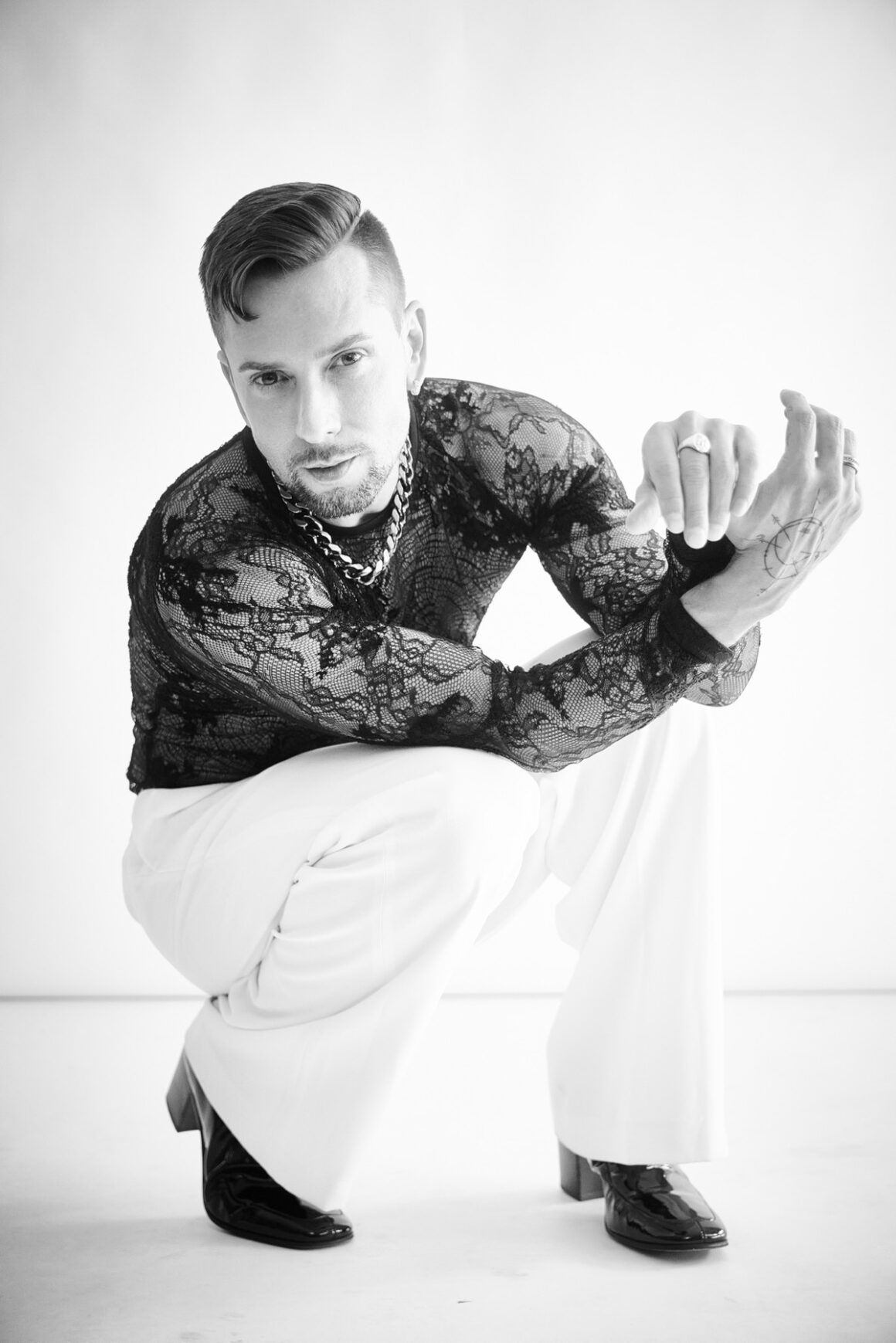
Was there a specific moment during the filming of the video that deeply impacted you or kind of changed the way you saw the song?
I think it was the entire experience having everybody there. I got there with my team about two hours before, so we started cutting footage that was just only I was needed for and when my production manager came in and said that people had started arriving, I kind of was like, oh shit, this is like really happening. I felt like nervous, but also very excited and when I walked out into the waiting area, everybody was there and I was like, oh, this is so cool that almost 25 people showed up and donated their time for the message because the message was that powerful.
I think I realized in that moment that if it wasn’t something they connected to, and if it wasn’t that powerful, we all have a million other things we could be doing and they certainly wouldn’t have driven downtown in the heat – it was so hot in the middle of August. They wouldn’t have been there for eight hours if it wasn’t something that they truly believed in. So, I think having everybody there and seeing it come to fruition was the moment I realized this is so much bigger than me and this could potentially have an impact on saving someone’s life.
Representation has been a recurring theme in your work. What do you hope that queer and recovery communities will feel when they see themselves possibly reflected in the video?
I just hope they don’t feel alone. You know, growing up as a little kid in Guadalupe, Arizona, Phoenix, Arizona, I didn’t see a lot of people that looked like me. I’m biracial, I’m half Mexican, half white and I was predominantly either in a white grade school community or a super Latino and black grade school community, so I always kind of straddled the fence and I never really like fit in. And then you add the layer of being like a theater kid and being gay. I knew I was gay when I was six years old. I had an affinity towards being friends with girls. I liked to play with Barbies. I never did like the things that little boys were supposed to do. I didn’t see a lot of representation and when I watched TV or even just around me in the communities I grew up in, I didn’t see any of that. So, I think for me, it was so important for me to get all walks of life in this video because I want everyone as much as possible to see themselves in somebody in some capacity. You know, that’s why we have so many people in the video. We have from young to old, we have alcoholics to addicts to sexual assault survivors to…I mean, you name it. There’s so much representation in the video and while you may not relate directly to that particular story, there are pieces in the story that you can.
We always look for similarities and not differences, right? Like, no one person’s going to be exactly like you or have exactly your story, but that doesn’t mean you can’t connect with them – and maybe that is your window of opportunity to say, hey, I need help and could you guide me in the right direction? I hope that by people seeing this video and just seeing the colorful cast that there is a lot of beauty in our differences and there’s a lot of similarity in those differences too.
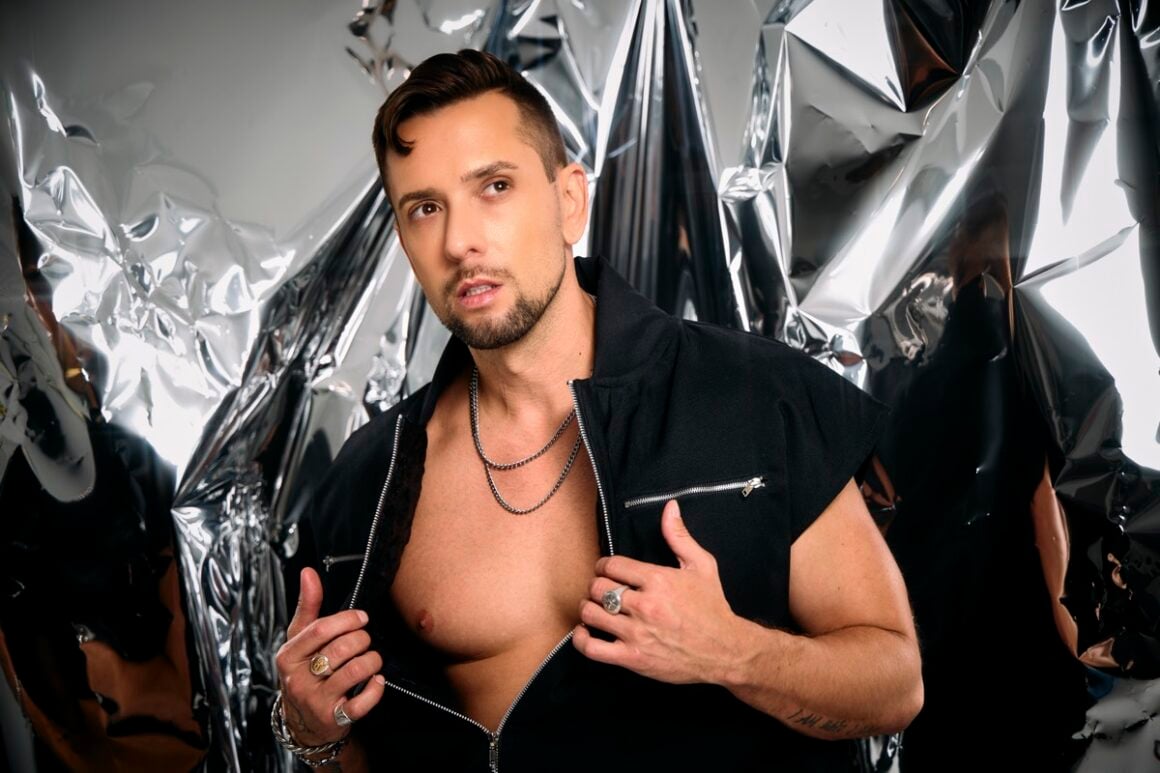
You’ve described music as a bridge back to yourself. What do you hope that the song becomes for the listeners who might be struggling right now?
I hope it becomes whatever they want it to become. When I write the song I write it from a place that’s personal to me, but once I release it to the world, it is really up to your interpretation of it. I hope you connect with it in any possible way you can. If that means that you just connect with the chorus, amazing. If you connect with every single lyric, incredible. But I hope that it inspires something in you that leads you to do whatever it is that you think is best for your life.
Maybe that change, maybe that divorce, maybe that marriage, maybe that recovery center. Maybe you needed to really start thinking about where you are in life and how you want to be in a different place and you want to push past that ceiling and try something new.
You know, change is never too late. My late grandmother, Linda, she passed away at a very young age. She was in her sixties when she passed away from lung cancer. And I remember a couple years before she passed away, she was dating this asshole. And we were like, this guy’s a dick. You should leave. And she was like, no honey, I’m too old for change. And who would know that two years later she was going to pass away? My point in that is that you’re never too old for change, even if you only have a year or two left. Can you imagine what that year or two would’ve been like if she would’ve just taken the leap and left that bastard and like done whatever.
She always wanted to go skydiving with me. We never got a chance to do that – and I’m terrified of heights, but I would’ve done it for her. I think in the story of the lesson in that is like, just do it. It’s never too late to change. Even if you’re 90, you can still have a good however remaining part of your life you can with that affected change. So, I hope that the song and the lyrics inspire strength, hope, change, recovery and resilience.
You’ve had such a powerful career since American Idol. How does this song compare to your earlier work in terms of like your own personal growth?
You know, it reminds me a lot of “Beautiful”, to be honest. When I released “Beautiful” in 2016, that song was very unexpected for me. I didn’t have an agenda or a motive. I actually didn’t even have plans on cutting a music video for it. It’s kind of crazy now that I think of it, how it evolved. It’s very similar to “feel it all”. It wasn’t something that I was like, yeah, this is going to be this.
It just ended up being this, because. The intention behind it was so pure and the way that we all went about it was just organic. It wasn’t contrived. We didn’t do it to go viral or get X amount of views. As a matter of fact, in 2016, I think views, I mean obviously like digital, digital age was really big still.
But it wasn’t like, I hadn’t had much success in social media, so there wasn’t an expectation. That’s what it was. There wasn’t an expectation. I just knew that when I shot “Beautiful”, I wanted there to be different walks of life in it. And then almost 10 years later, we’re doing “feel it all”. It’s a slightly different concept, but kind of the same in terms of representation, inclusivity, and overall love.
What’s next for you after this release? What can we expect from you?
I am going on the road as a matter of fact. “Beautiful” hits its 10-year anniversary next year, which is crazy to me. I just enlisted an incredible producer to recreate that track and just bring it up to date a little bit, and I’m going to have a really special feature on it. So that comes out the top of next year, and then we’ll be going on a full Pride tour and just a regular tour as well and those dates are TBD.
I have a string of shows this weekend in Vegas and I’m doing AFAN’s Black & White Gala next Saturday, September 20th. AFAN is the AIDS nonprofit charity organization in Las Vegas. I’ll be headlining that and then, from that point, we have a few more shows sprinkled throughout the year but I think next year will be a really cool fresh, clean slate with all the new music, including “feel it all”. I’ll be touring with that as well next year and there’s, of course, my acting and film. I have a feature film coming out at the end of October called Glamping and it comes out on Tubi, which will be really cool. I play a really interesting character. There’s a lot of things running on the front, but as we wrap up the end of the year, we’re really preparing for next year – and, of course, this release right now.
“feel it all” is available on Apple Music or wherever you stream music. Keep up with David on Instagram, Spotify, YouTube, Facebook and on his website.
MORE POP CULTURE HEADLINES
